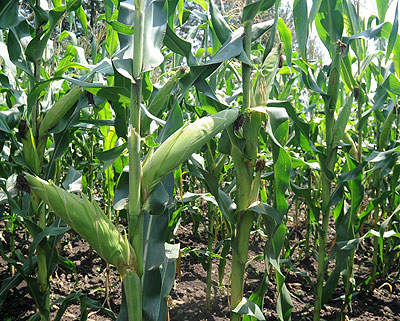Editor, Please allow me to respond to the article, “Is Rwanda ready for genetically modified foods?” (The New Times, December 3).


Editor,Please allow me to respond to the article, "Is Rwanda ready for genetically modified foods?” (The New Times, December 3).I have also read a UN well-researched and scientifically conducted report and all I can say is that we don’t have any other alternatives other than embracing Genetically Modified Organisms (GMOs). Refer to the following quote from the report:A recent study published in the journal Food Policy, titled "Status of development, regulation and adoption of GM agriculture in Africa”, shows that heated debates over safety concerns continue to plague efforts to use GM crop technology to tackle food security problems and poverty."Yet results from the four African countries that have implemented commercial GM agriculture – Burkina Faso, Egypt, South Africa and Sudan — suggest an improvement in productivity. In South Africa, a 2008 study showed an 11 per cent grain yield advantage when using GM maize, and in Burkina Faso, the technology has led to a 15 per cent increase in cotton."Compared to conventional plant breeding methods, GM technology is less time-consuming and more accurate in acquiring the desired objectives.”That explains it all!As you can see, there’s a significant increase in productivity in those four African countries and I can bear testimony because I was in two of them – South Africa and Egypt. In those countries, the first thing you notice is food security.In Rwanda, we are practically faced with food insecurity and it looks like officials from the Ministry of Agriculture aren’t doing anything to reverse the trend. Food prices skyrocket everyday and only relatively few people are able to get fruits for their children. Farmers are guided by the same officials who think that they must do everything unscientifically, leading the former into disturbing dilemma. The officials have never apologised and they are still enjoying comfy offices, government-sponsored lifestyle while those who sweat to feed us are counting days for a possible lurking famine.Recently, farmers were given spoiled seeds and they are anxious that famine could hit any time from now. Also I understand that in the recent past a mysterious insect devastated maize farms. The problem continues up to this day.I think we should give a chance to those scientific methods towards commercial agriculture. We need to do it with a view to end food insecurity once and for all. I understand those who demur about the practice, but they have to open their eyes and see the benefits of GMOs in Europe, America and some African countries. I don’t think that Rwandans have a higher lifespan than those people.I would rather choose to consume GM foods than worry about food insecurity and famine.Mutara Intore, Kigali


